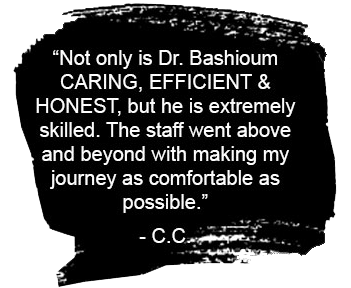Patient Safety Dilemma
December 16th, 2009
Elective surgery is defined as surgical treatments which are not emergent or life threatening. Elective surgery is often scheduled at the convenience of the patient, surgeon or based on operating room availability. It may also be rescheduled for a variety of reasons. I repeat, surgery can be rescheduled, even though it may present a major inconvenience to everyone involved.
Last week a patient came into my clinic to have breast enlargement surgery. I knew there was a problem immediately when I approached the preoperative examination room and noticed the lights had been dimmed in the room. When I entered, the patient was not looking well. She did not have a smile on her face, her eyes were not bright, and her speech was slow and deliberate. She told me she had a bad headache and felt sick to her stomach. In other words she did not look or feel well. She told me both of her friends had taken time off work to care for her after surgery. She had also taken time off work to have the surgery and recover. She wanted to proceed with the surgery, stating that she thought she would feel better after this (surgery) was all over. She attributed her condition to premenstrual symptoms. I faced a significant financial loss, but I did not hesitate to cancel her surgery that morning. How should I have advised her? Should I have accommodated her wishes? Should I take the chance that she might have a serious neurologic event (stroke or aneurysm) during anesthesia? Should I take the chance that she might vomit after surgery, causing bleeding around an implant, resulting in the possibility of subsequent capsular contracture or severe hardness?
I chose to postpone her surgery. To my surprise, both of her friends breathed a huge sigh of relief when I told them of my decision! They even tried to talk her out of going to my office, being that sick. They were very relieved after the cancellation and I received profuse thanks from them.
I believe patient safety should be the first priority when it comes to the practice of medicine and to me it is. There is no justifiable argument when it comes to patient safety. Anything which increases the risk of complications during surgery or after surgery leads to the necessity for rescheduling the surgery and sometimes the cancelling of surgery altogether. The economic downside is considerable. The operating room has committed medical supplies and personnel valued at hundreds of dollars, the patient has taken time off work, the patient’s friends may have taken time off work to provide care, and the surgeon has reserved time in his or her schedule to do the surgery, the surgery must be rescheduled or cancelled when there is any problem discovered during the preoperative period. Remember the preoperative period extends all the way up to the moment the surgery begins (when the skin is cut).
As it turned out, her headache went away the next day. She came back a week later and had the surgery. However, this time before surgery, she was her normal and smiling self. She has had no difficulty with recovery and is doing well now.
Leah Blog: Rules for my recovery after surgery
December 15th, 2009
The packet that I received from Bashioum Cosmetic Surgery Center with my pre-op (before surgery) instructions also outlines what I need to do after my surgery. Dr. Bashioum stresses how important it is for me to follow his “after-care†instructions. The final result is influenced by my adherence to them. Since I have four young kids that require a lot of energy on my part, I really need to look over this section of the packet, because I understand the importance of it for my own safe recovery. My husband will be with me the day of the surgery and my mother-in-law will be here the rest of the time to help take care of my kids (especially the youngest). It will be very hard for me not to lift anything more than five pounds for 3 weeks! I think my purse alone weighs more than that!!! My family (HOPEFULLY) will help me by carrying anything that I can’t lift. I know that following the after-care instructions will help me achieve the best possible result from surgery and for this reason I will try to be really careful.
A great deal of my peace of mind comes from the fact that Dr. Bashioum is a Board Certified Plastic Surgeon. This is important since he has special training qualifications that allow him to focus exclusively on all aspects of cosmetic surgery. I feel so confident knowing this and the fact that he has years of experience doing many cosmetic surgeries allows me to concentrate on my experience without any doubt. There are several ways to look for a Board Certified surgeon: Search online, or simply ask to see the credentials from the physician that you are considering to do your surgery or visit the website for the American Society for Plastic and Reconstructive Surgeons.
Be sure to check back to see video clips of my preparation before going into the operating room on the day of my surgery, which will be followed by film of my abdominoplasty.
